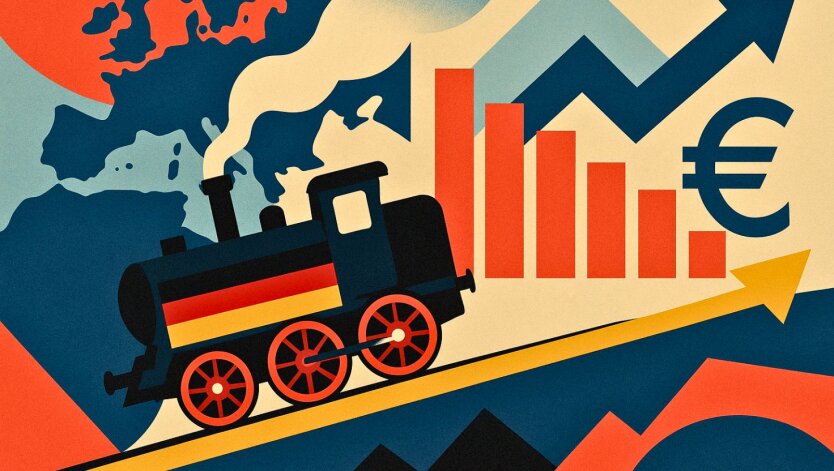Why the German Economy is Stalling.


A new government coalition will start working in Germany at the beginning of May, facing challenges in restoring sustainable economic growth in the country. In recent years, Germany's economy has lost momentum, having previously been the engine of the European economy. One of the steps to improve the situation was the easing of the debt brake, which limited state borrowing. Now the new government can create an infrastructure fund of 500 billion euros and increase military spending. However, will this have a positive impact on the German economy, which has been stagnating for some Time now?
The problems of the German economy are evident in the declining GDP over the past years, as well as in the reduction of industrial production. Many factors have contributed to this situation, such as insufficient investments, cautious spending, and the debt brake. Germany is also facing an aging population and weaknesses in innovative technologies. All of this has led to the German economy stalling and being unable to achieve stable growth.
One possible solution is an increase in the militarization of the German industry and a shift towards the production of military equipment and ammunition. Additionally, the establishment of an infrastructure fund could serve as an extra stimulus for economic development. However, suboptimal decisions in the energy sector and a tendency towards savings and restrained consumption could complicate the situation. Therefore, the prospects for the German economy remain uncertain.
Overall, the current situation in the German economy requires a comprehensive approach and adjustment of the country's economic behavior. Due to cautious spending habits and a propensity for saving in German society, it's hard to expect sharp growth. Yet, the growth of militarization in industry and the creation of an infrastructure fund could become the first steps towards improving the situation.
Read also
- Molotov Cocktail for Putin: Nauseda said how Merz failed with threats to Russia
- Slovakia may block new EU sanctions against Russia: Fico issues ultimatum
- Musk and Bessent clashed after a dispute over Trump: WP revealed the details
- Bread for 50 Hryvnias: Ukrainians Warned about Record Price Surge
- I would like to have more: Zelensky mysteriously spoke about relations with Trump
- Changes in the Labor Market: How Employers are Coping with the Shortage of Personnel and What Salaries They Offer










